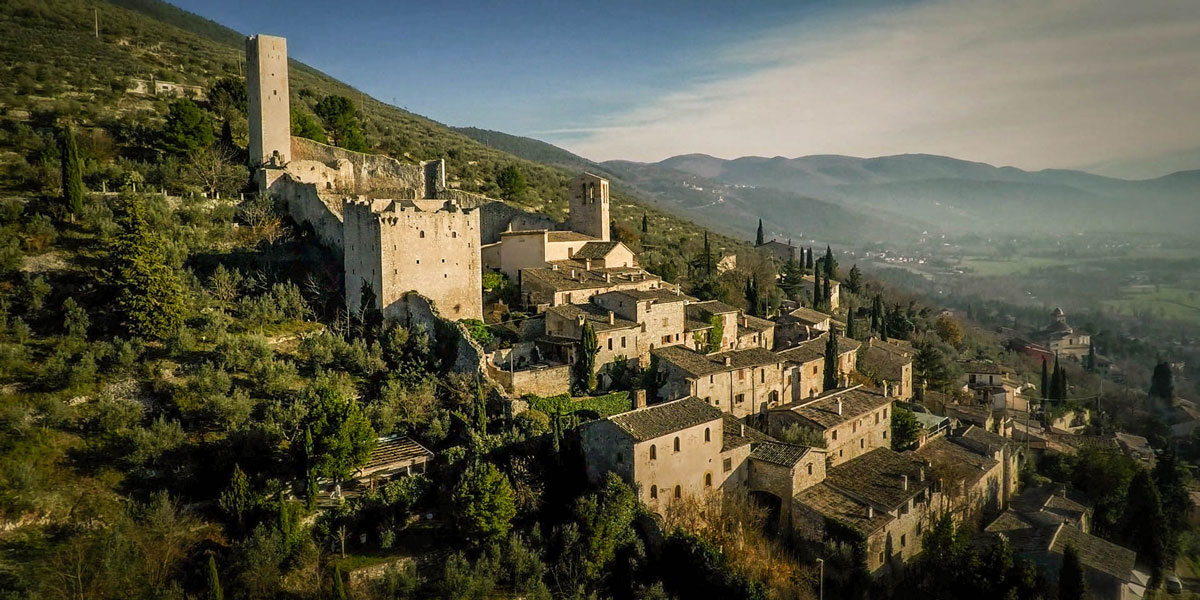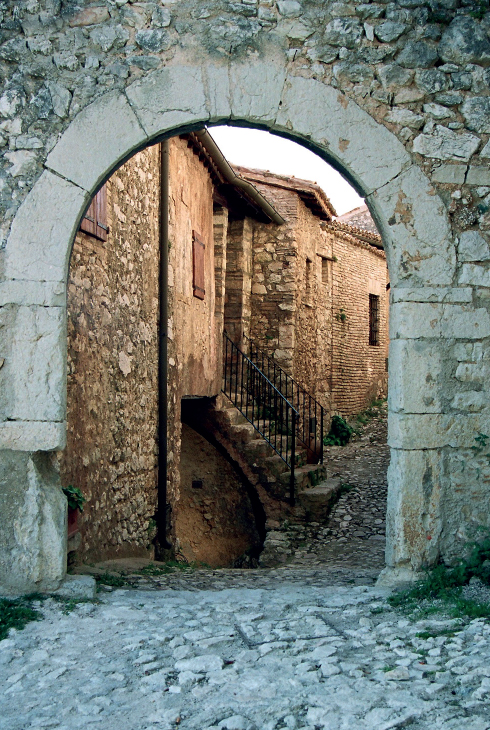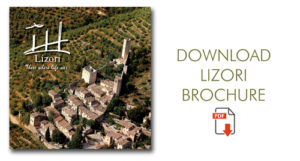
-
“Lìzori” is the imaginary name given 40 years ago to Borgo S. Benedetto, a hamlet in the municipality of Campello sul Clitunno, in the province of Perugia, Umbria, the green heart of Italy. A soft and musical name, coined for fun by Antonio Meneghetti, what does ‘Lizori’ mean?
Three words in one:
“Lì”, is an adverb of place in Italian, that means ‘there’;
“Zo”, is the most ancient form that the Greek verb ‘to live’ used to have
“Ri”, is a conjugated form of the ancient Greek verb orao, that means “to see”
“There where life sees”, “there where life
contemplates itself” -

With centuries of glorious past behind and a more recent period of total neglect after WWII, the hamlet experienced its rebirth in the second half of the 1970s, thanks to the initiative of a group of Italian architects, engineers, businessmen, artisans and professionals coordinated by Antonio Meneghetti. The entire recovery of the hamlet was undertaken and accomplished, returning a true historical/architectural jewel to the public use, that soon became an international art, culture and education lab, under the sign of timeless, humanistic values. Thanks to Meneghetti, other places in the world would experience a new fate, in Brasil, Russia, and in some farmsteads in Lombardy; yet it is Lizori that remains the first project that gave a home to this everliving Humanism.
For this reason, Lizori, a place of accomplished environmental and civic ecology, is also home to a number of Italian and international associations, bodies and institutions, operating in various fields, from art to science, from research to education of a man who is industrious in his place, yet open to the new globalization, to radiate social, civilization and development values.



You must be logged in to post a comment.